Energy strategy: Investment in renewable energy is 'exciting stuff'
- Published
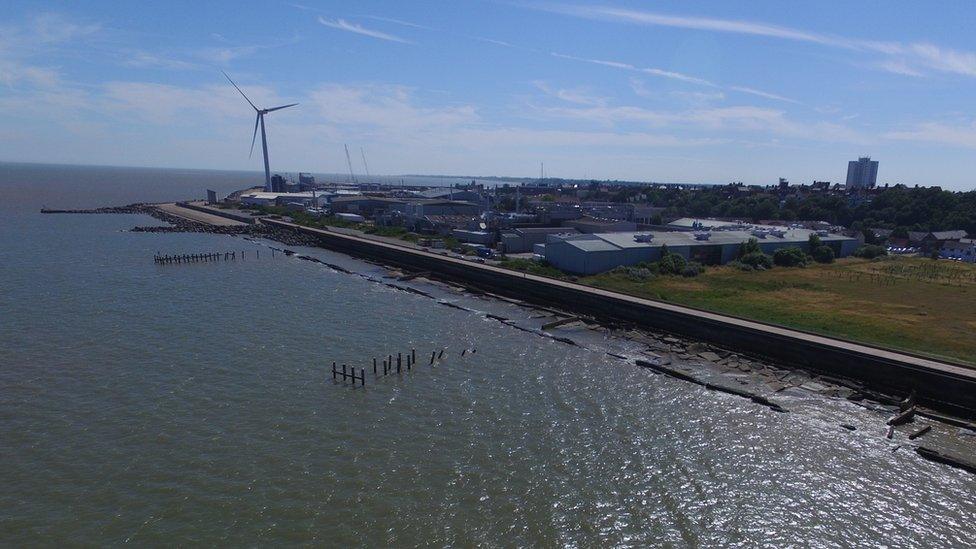
Harnessing the wind from the most easterly point in the country, Lowestoft, has seen major investment in the area
The government has unveiled its new energy strategy for the UK. It plans to make 95% of electricity low carbon by 2030, and build up to eight more nuclear reactors on existing sites, to help tackle rising energy prices.
There are no set targets for a major increase in onshore wind capacity but according to the East of England Energy Group, by 2030 the East of England will produce a third of all UK electricity. So what does this mean to those working within it?

'It's a growing industry'
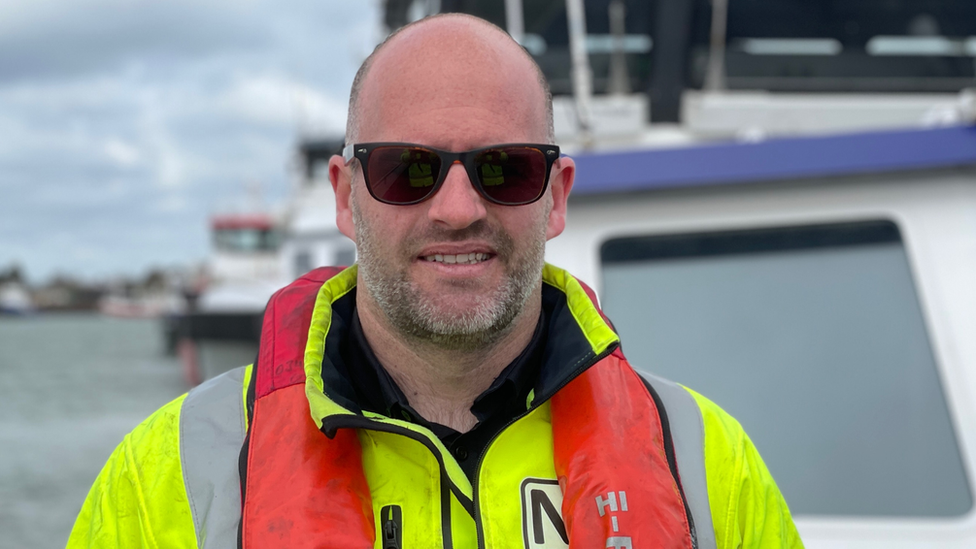
Owen Nutt has three boats that work out of the Port of Lowestoft as well as two that operate in Wales
NR Marine Services director Owen Nutt started out as a fisherman - but moved to work in the wind farm industry as a mechanic for several years.
His love of boats took him back to the water and he now has three vessels based in Lowestoft. They transfer technicians to and from the wind farms from March to November, when the weather is favourable.
He sees his future working within the wind industry.
"I was lucky enough to get into it right at the beginning and seen it through as it was built and they're continually building off shore wind farms which is great," he says.
He plans to buy more "potentially bigger" vessels.
The renewable energy industry has changed the Lowestoft area as "the port is now full of wind farm boats and all activity to do with the industry. It's exciting stuff," he says.
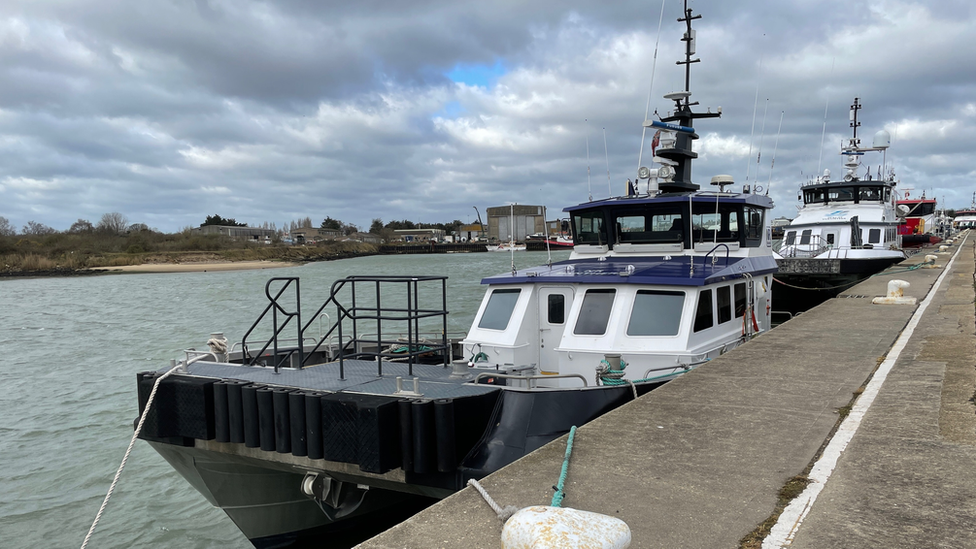

'The East coast are global leaders within offshore renewables'
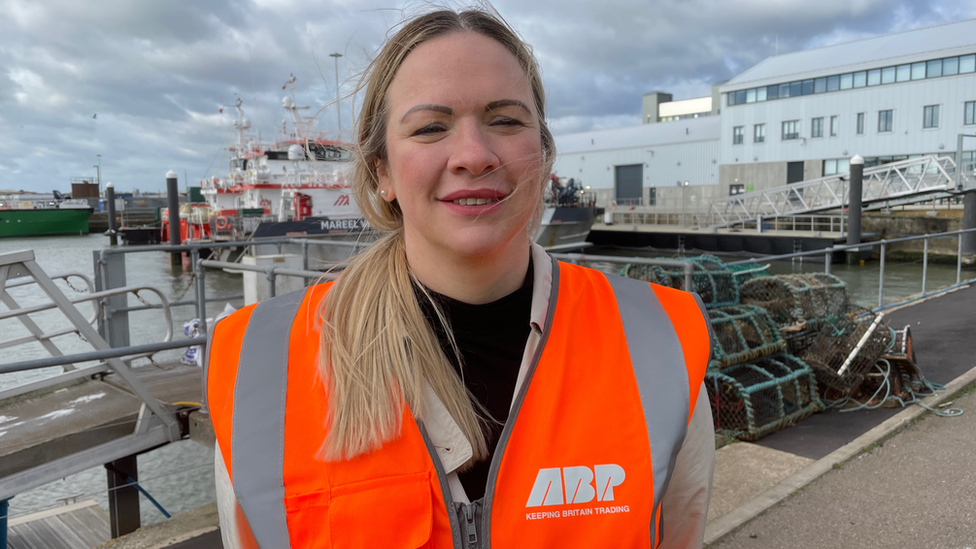
Denise Hone has seen significant change in the Suffolk port
Denise Hone has spent most of her life in Lowestoft and says she has seen a "a phenomenal change" in the town over the last decade.
She works for Vattenfall, an offshore windfarm company.
Associated British Ports, which runs The Port of Lowestoft, has spent £25m in recent years an the investment has attracted Scottish Power Renewables and SSE Energy to the area.
"What we need now is action, but the developers and the supply chain are ready," she says.
"The East Coast are global leaders within offshore renewables.
"Developers are choosing to significantly invest in areas such as Lowestoft and Great Yarmouth, due to their location and proximity to the offshore wind farms."
You might also be interested in:
She says at the moment there is a skills shortage - but work is being done to address this.
"There are a number of world class educational settings, both at college and university, which are really playing their part to ensure we have the personnel ready," she adds.

Analysis: Andrew Sinclair, BBC East Political Correspondent
This report confirms the importance of the East when it comes to supplying the country's future energy needs.
There is a clear message running through this energy strategy: the government wants to see new forms of energy delivered as quickly as possible and the East of England has a head start.
We have wind and solar schemes already up and running with more in production, the plans for Sizewell are well advanced - and hundreds of local firms are working on new forms of energy technology.
Energy is set to become a major plank of the local economy, bringing new prosperity and creating thousands of jobs.
But it will also bring major disruption to communities as cables are laid and infrastructure built.
Not everyone will welcome this new dash for energy self-sufficiency.

'We are the region the others are turning to'
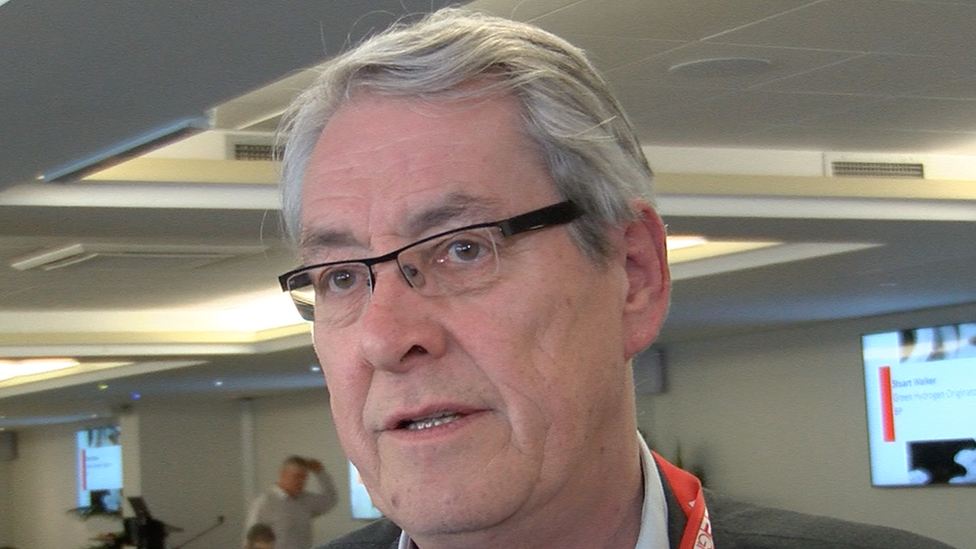
Simon Gray: "The East has every type of energy generation with the exception of hydro"
Simon Gray, from the East of England Energy Group, says the East is so diverse that it has become an "exemplar for the rest of the nation".
"Forty-eight per cent of the nation's offshore wind is off the coast of Norfolk, Suffolk and Essex," he says.
"We've got Sizewell B and the potential of Sizewell C, we've got Bacton and our gas links there, we have the interconnectors to mainland Europe, we've got largescale solar, we've got onshore windfarms, we've got biofuels.
"You name it - this region's got every type of energy generation, with the exception of hydro.
"It means the area will have jobs for the next two or three generations, if they can get more young people coming through the industry."
Offshore has proved very productive, he says, but hydrogen could be the new alternative to gas, with interest in the Bacton [Norfolk) Hydrogen Hub project.
"We are the region that other regions are turning to, to determine how it should be done," he says.

'In the short-term wind turbines and onshore wind are the answer'
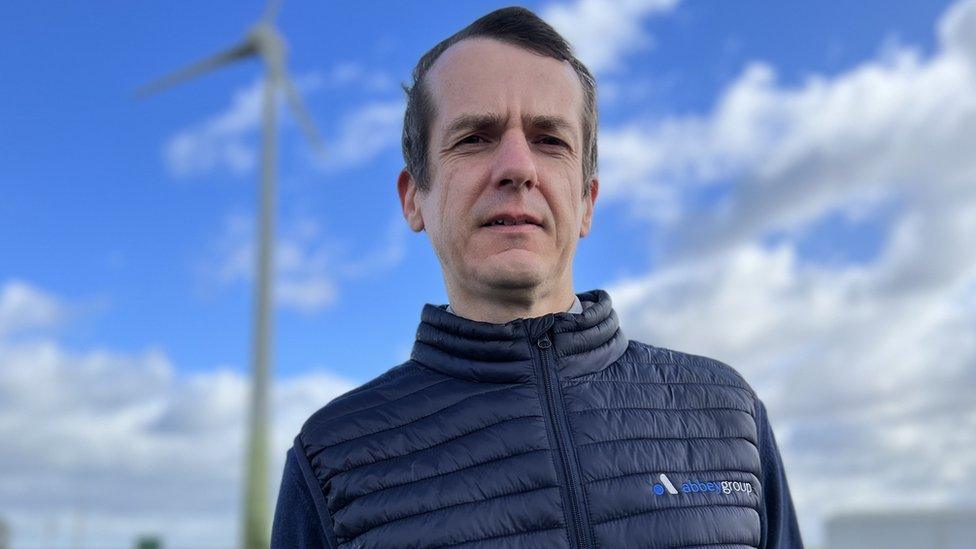
Andy Brand from The Abbey Group says wind turbines can provide benefits to the local community
Andy Brand is the planning director of Peterborough-based Abbey Group, which has several windfarms and turbines across the country, including one at Chatteris, Cambridgeshire.
He has been left "disappointed" with the government's announcement not to set targets for a major increase in onshore wind capacity.
"The focus on renewable energy hasn't been as much as it could or should have been," he says.
"It is about creating and providing a safe energy mix that can deliver now and going forward for further generations.
"Renewable energy has to be part of that mix".
He believes the "energy strategy should have looked at shorter and longer-term delivery of energy".
"In the short-term wind turbines and onshore wind are the answer to that. If the planning and grid connection issues can be resolved, they can be erected quickly and we would all feel the benefit in our energy prices."
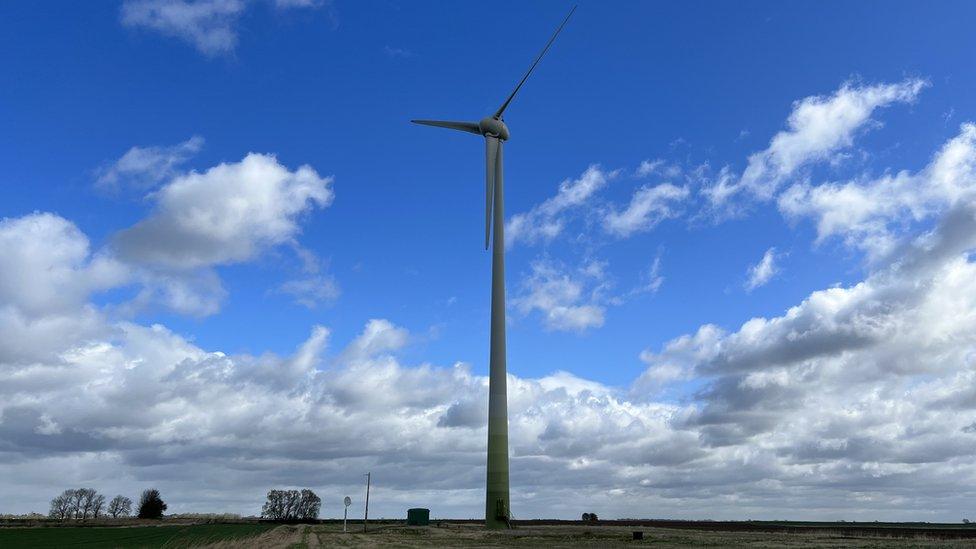
The Abbey Group says it has developed over 30MW of wind power over the years

Find BBC News: East of England on Facebook, external, Instagram, external and Twitter, external. If you have a story suggestion email eastofenglandnews@bbc.co.uk, external
- Published7 April 2022
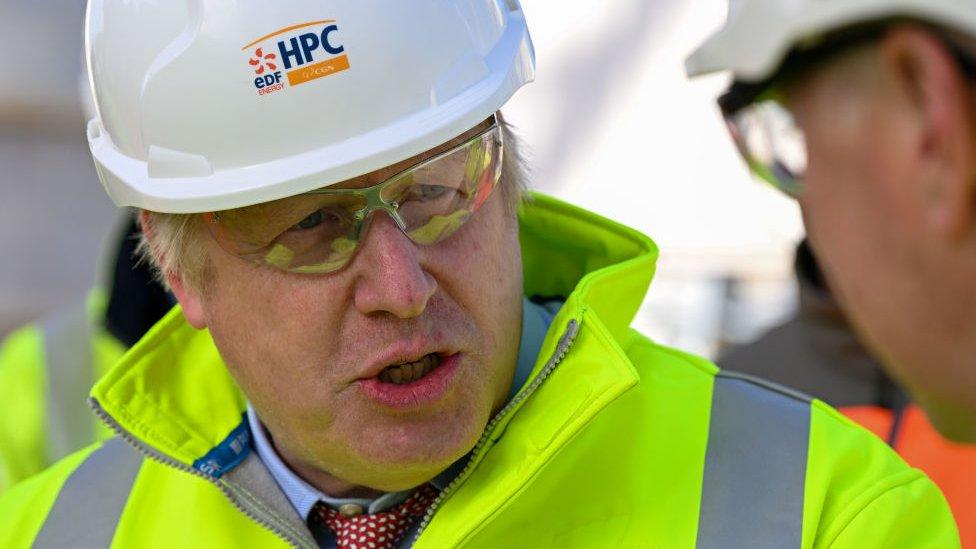
- Published7 April 2022
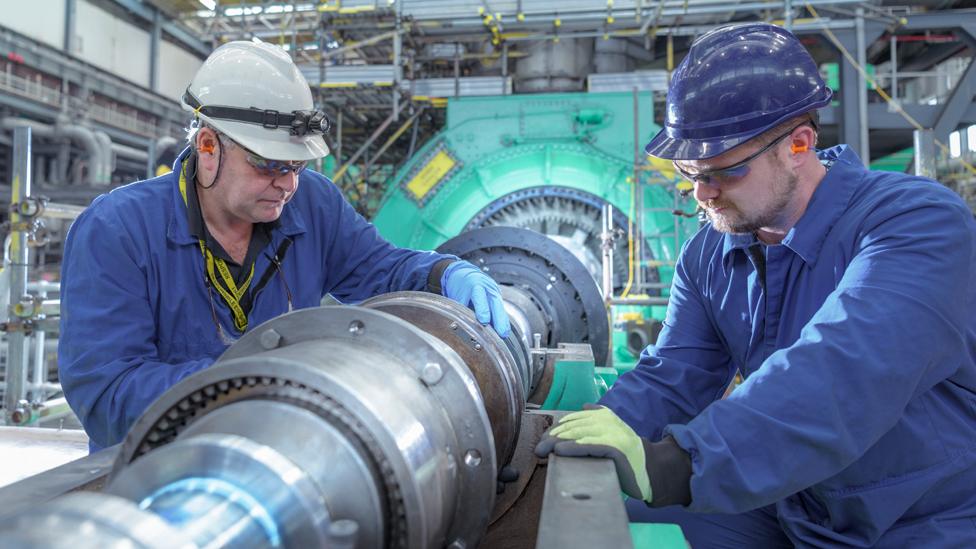
- Published7 April 2022